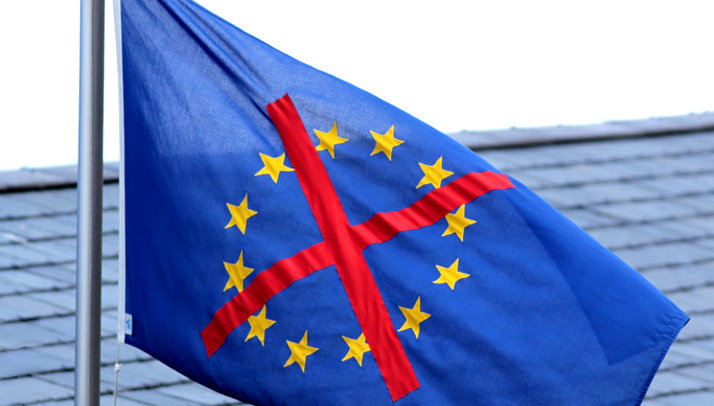Though anti-EU outsiders UKIP might top the polls at the European Parliament elections in Britain, a eurosceptic streak runs through all the mainstream parties they stand against.
The United Kingdom Independence Party of Nigel Farage, which is fixed on getting Britain out of the European Union, is riding high ahead of the May 22 vote.
Yet the three main parties — the Conservatives of Prime Minister David Cameron, the Liberal Democrats, and Labour opposition — are hardly bastions of whole-hearted support for the EU.
UKIP is the manifestation of a “much tougher brand of euroscepticism” than that found within the mainstream parties, said Philip Lynch, senior lecturer in politics at Leicester University and an expert on British attitudes to the EU.
Led by Deputy Prime Minister Nick Clegg, the unashamedly pro-EU party is campaigning as the only mainstream choice with a clear, united stance on Britain’s place in Europe.
However, even the Liberal Democrats’ enthusiasm is nuanced.
– Conservative EU hostility strong –
The Conservative-Liberal coalition has set in law that any proposed fundamental change to Britain’s relationship with the EU will trigger a referendum.
Euroscepticism is strongest in the Conservatives, whose anti-EU right-wing core feels UKIP are stealing their clothes.
Even its most pro-EU factions are reformist.
They have pushed Cameron into pledging — if returned to office next May — to renegotiate Britain’s relationship with the EU and then put it to an in-or-out referendum by the end of 2017.
Labour’s European election campaign has been almost invisible. The party is focusing instead on the local elections being held the same day.
Their campaign material is buried within one of 33 links on its website. From there, searching under “Agenda 2015” brings its manifesto within another two clicks.
In a televised debate with Clegg on Europe, Farage alleged that Labour were so divided on the EU that “they’d rather not talk about it and they’d rather conduct the European elections not even discussing this question”.
Labour leader Ed Miliband has pledged to hold a full-on in-or-out referendum on any EU treaty change, feeling any plebiscite on new arrangements would become a de facto vote on Britain’s continuing membership.
But unlike Cameron, he admits it would be unlikely before 2020.
– Labour formerly most eurosceptic –
Lynch said Miliband had picked a position around which enough of the party could unite.
Labour lawmaker Graham Stringer was one of those pushing Miliband to offer a referendum.
Through the 1970s and 1980s, Labour was the more eurosceptic of the two main parties, before the poles reversed — a shift which grassroots members followed.
Future Labour prime ministers Tony Blair and Gordon Brown entered parliament in 1983 on a manifesto pledging to pull Britain out of the EU.

COMMENTS
Please let us know if you're having issues with commenting.